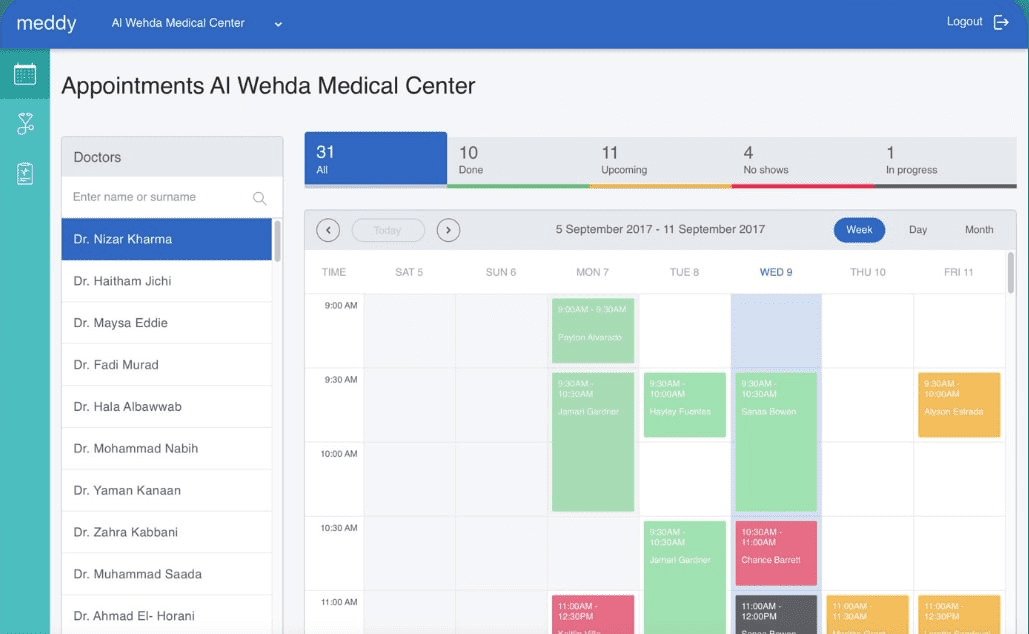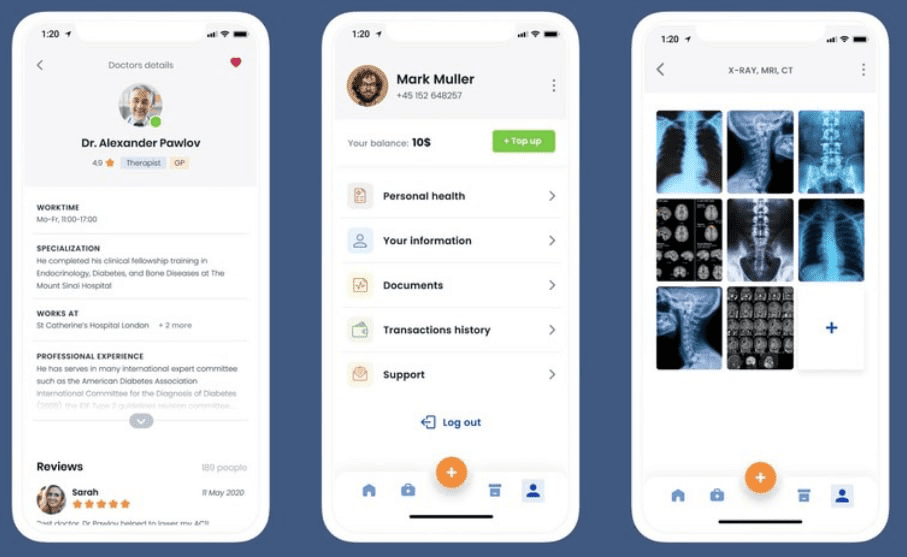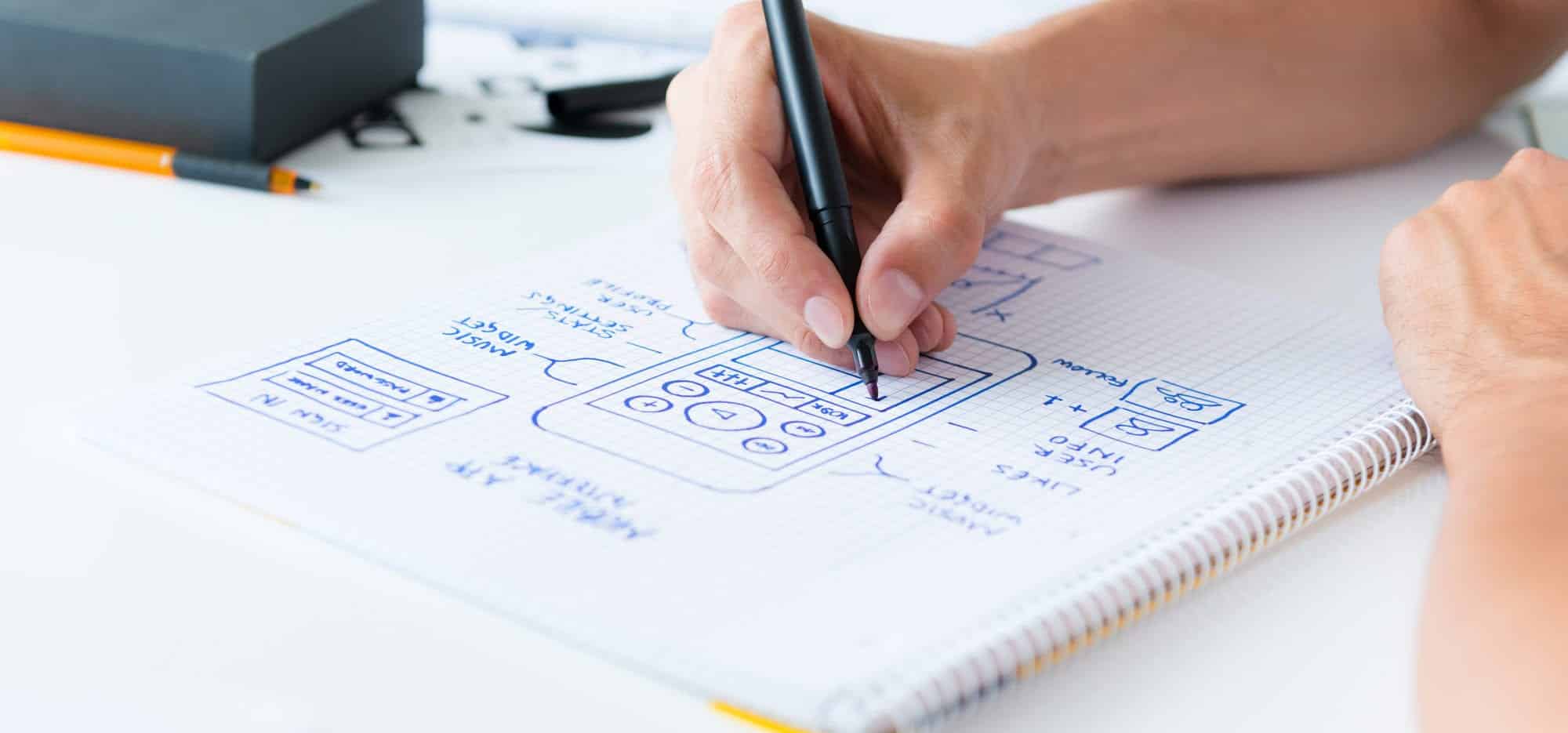Recent global-level events have had a profound effect on the healthcare niche. Under the pandemic, patients and doctors started using digital devices for regular medical checkups, first and repeated consultations and prescription approvals. With access to more than 300,000 mHealth applications in app stores, the outpatient activity was moved to video calls, emails, and push notifications. In 2020, medical institutions took first place by revenue ($1,18 billion) among the US biggest industries. By 2023, this number is expected to increase to $102 billion.
Against this background, many medical startups are planning to make an entry in this flexible and fast-growing industry, bringing value to their users and winning the market. So what does medical app development encompass?
Decide on the Medical App Type
Out of over 300,000 mHealth apps, you won’t find two absolutely alike. Generally, they all can be divided into two categories: for healthcare professionals\consultants and patients. And before you are into the actual medical app development process, you need to decide under which of the two categories your app will be released.
Mobile apps for physicians and consultants are available in different types, including the following:
- Management apps are electronic devices that help doctors eliminate paperwork. Such apps are used for taking notes and scheduling meetings either with colleagues or patients.
- Maintenance apps ensure quick access to EMRs and EHRs for checking electronic prescriptions and billing data.
- Telemedicine and telehealth apps help doctors stay in touch with their patients via voice calling and multimedia messaging.
- Reference apps help doctors access the information on medications, health conditions, and medical news.
- Decision-making apps offer doctors medical calculators and access to guidelines on medical tests.
- Education and training apps provide e-learning materials for professional tests and board exams.
Depending on the type, medical apps for doctors have different feature sets. Yet still, features like profile creation, booking, file storage, payment, ratings, and reviews are common for all app types.
Patient apps also fall into several types, each one with its own functions benefiting both patients and healthcare professionals:
- Patient engagement apps allow users to automate most of the medical service processes, from scheduling an appointment to paying for medical services.
- Telemedicine apps give patients a way to communication channels and quick access to physicians and medical consultants.
- Pill reminders and medication trackers make the intake of medication timely and allow patients to renew prescriptions from the comfort of their homes.
- Diet and nutrition apps help patients track metrics, maintain healthy eating habits, exercise regularly, and monitor other habits.
- Health record apps give easy access to lab reports and medical condition information.
Choose Functions That Will Serve Users Best
Narrow down a long list of possible medical app functions to the ones that the users will need the most. It’s obvious that the choice will depend on the type of app you decide to develop. However, there’s a feature set that suits any health app:
- Personal profile
- Dashboards with patient information
- Analytics with reports and chart functions
- Payment portal
- Real-time chat and video
- Scheduling appointments online
- Lab test results access
- Reminders and notification
- Request prescription refill
- Download and upload lab reports
If you choose to develop a patient-oriented app, you need to target the needs of the app’s end users and focus on the features that will deliver them the best user experience.
If you go with the doctor-oriented app, include more features to allow doctors to analyze patient health information in an easy way from more than just one digital device.
Hire Medical App Developers
Maintaining an in-house software development team seems to be the right choice only at the first stages of product development. With time, staff turnover, lack of versatility and talents along high maintenance costs pose many challenges. This is why you’d better choose a reliable outsourcing healthcare app development company.
When outsourcing medical project development, you’ll enjoy advantages like:
- Reduced costs
- Saved time
- High-quality end-to-end services
- Access to a wide pool of talents
- Ongoing support
- High communication standards
- Risk reduction
- Close collaboration
To hire a reliable team for your medical app development, you need to explore ratings and review platforms, check the company’s portfolio for relevant projects, establish contact and ask for a quote, negotiate and sign a contract settling important aspects like confidentiality, payment terms, and property rights.
Steelkiwi’s Experience in Medical Software Development

Meddy.co
Meddy.co is a booking software integrated with the database of doctors and hospitals in Dubai, Qatar, and Bahrain. Through the software, hospital administrators can quickly schedule appointments for patients with relevant specialists, thus ensuring a high level of medical care. Also, patients can use the platform to schedule appointments directly, without hospital administrators as an intermediary.

Benemedic
Benemedic is a telemedicine application developed to ensure easy access to doctor-patient consultations via video and voice calls as well as chat. Through this application, patients can communicate with doctors from the comfort of their homes, describing symptoms and paying for provided services. On the other hand, doctors and medical consultants can effectively manage their time, easily access medical records, and get paid for their consultations.
You can explore your medical app development ideas with our healthcare software team. With our relevant experience and expertise, we’ll be happy to assist you with transforming your ideas into a modern application that will bring value to users and revenue to your business.
Mobile application development -DepositPhotos


